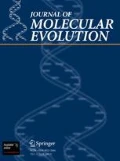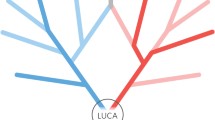Abstract.
The heterotrophic theory of the origin of life is the only proposal available with experimental support. This comes from the ease of prebiotic synthesis under strongly reducing conditions. The prebiotic synthesis of organic compounds by reduction of CO2 to monomers used by the first organisms would also be considered an heterotrophic origin. Autotrophy means that the first organisms biosynthesized their cell constituents as well as assembling them. Prebiotic synthetic pathways are all different from the biosynthetic pathways of the last common ancestor (LCA). The steps leading to the origin of the metabolic pathways are closer to prebiotic chemistry than to those in the LCA. There may have been different biosynthetic routes between the prebiotic and the LCAs that played an early role in metabolism but have disappeared from extant organisms. The semienzymatic theory of the origin of metabolism proposed here is similar to the Horowitz hypothesis but includes the use of compounds leaking from preexisting pathways as well as prebiotic compounds from the environment.
Similar content being viewed by others
Author information
Authors and Affiliations
Rights and permissions
About this article
Cite this article
Lazcano, A., Miller, S. On the Origin of Metabolic Pathways. J Mol Evol 49, 424–431 (1999). https://doi.org/10.1007/PL00006565
Issue Date:
DOI: https://doi.org/10.1007/PL00006565




